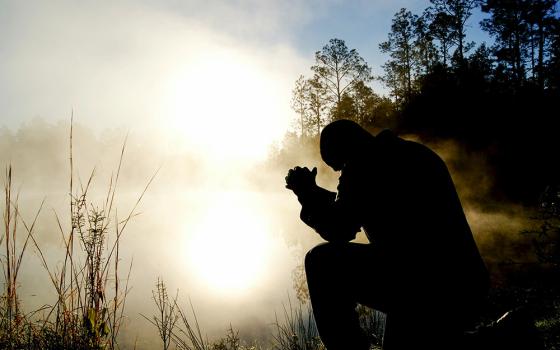On March 16, 1649, Fr. John de Brébeuf and his younger companion Gabriel Lalemant were taken prisoner by the Iroquois "and carried off to Saint-Ignace, where they suffered one of the most atrocious martyrdoms in the annals of Christianity. Brébeuf’s torture has been told us with moving simplicity by the donné Christophe Regnault, who saw his remains: 'Father de Brébeuf had his legs, thighs, and arms stripped of flesh to the very bone; I saw and touched a large number of great blisters, which he had on several places on his body, from the boiling water which these barbarians had poured over him in mockery of Holy Baptism. I saw and touched the wound from a belt of bark, full of pitch and resin, which roasted his whole body. I saw and touched the marks of burns from the Collar of hatchets placed on his shoulders and stomach. I saw and touched his two lips, which they had cut off because he constantly spoke of God while they made him suffer.
“'I saw and touched all parts of his body, which had received more than two hundred blows from a stick. I saw and touched the top of his scalped head; I saw and touched the opening which these barbarians had made to tear out his heart.'"
-- "John de Brébeuf," in the Dictionary of Canadian Biography Online, by René Latourelle, S.J., Professeur de théologie et auparavant doyen de la faculté de théologie, université Grégorienne, Rome.
They ate his heart.
"There was no pettiness in this man, no meanness. One would look in vain in his writings for any sign of rancour, of bitterness in judgement, of secret jealousy. His mildness was proof against all scorn. The audacity which marked some of his actions was less a trait of his character than a form of his apostolic zeal. Two extremes were blended in him: on one hand, the realistic man, a friend of tradition, who appeared in the college steward, the mission organizer, the humble religious, and on the other hand the ardent, energetic apostle, courting all occasions for martyrdom and all the irrationality of the cross. Such was he who has been called 'the giant of the Huron missions,' and more recently 'the apostle whose heart was devoured.'”
Click here for The Huron Carol, by St. John de Brébeuf.
Click here for some images of St. John de Brébeuf.


